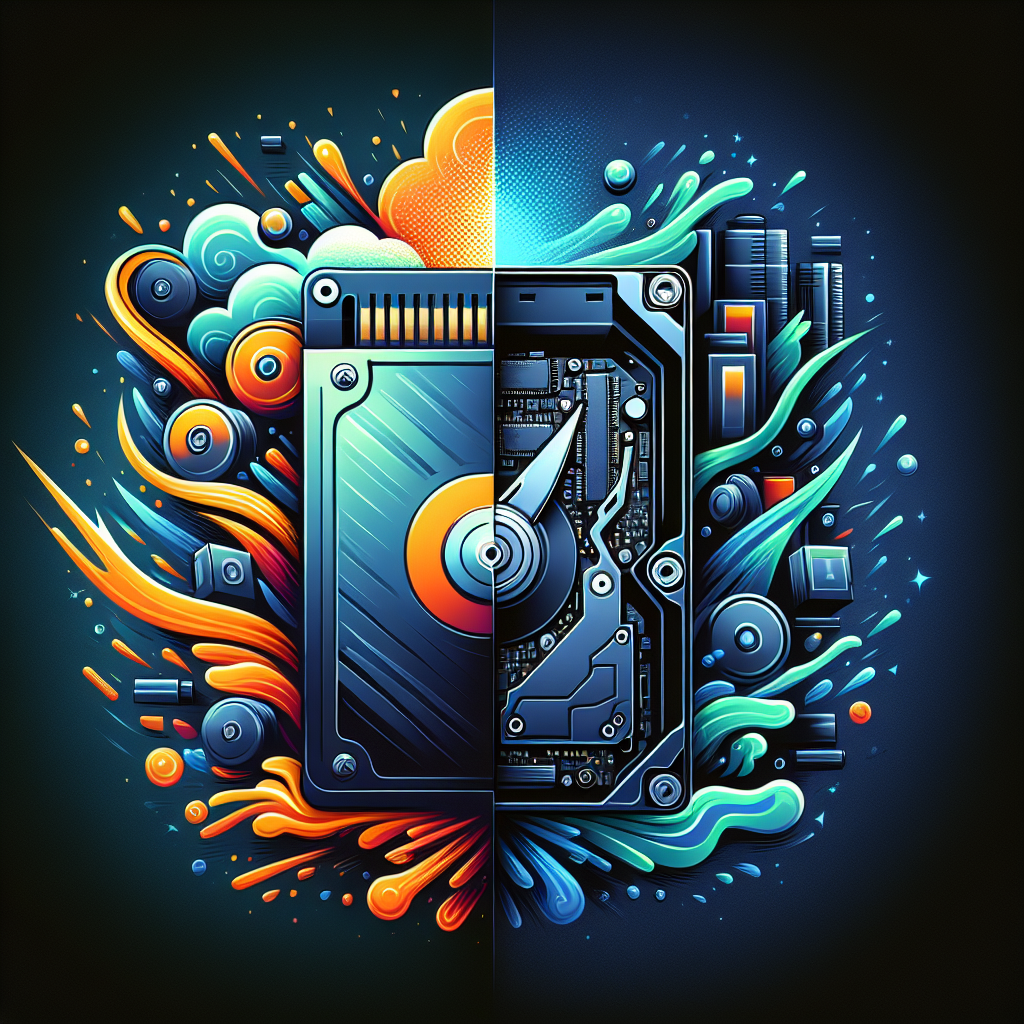Your cart is currently empty!
Comparing Solid-State Drives vs. Hard Disk Drives: Which is Right for You?

Solid-state drives (SSDs) and hard disk drives (HDDs) are two of the most common types of storage devices used in computers today. While both serve the same basic function of storing data, they have distinct differences that can impact their performance and suitability for different tasks. In this article, we will compare SSDs and HDDs to help you determine which type of drive is right for you.
SSDs are a newer technology that use flash memory to store data, while HDDs use spinning disks and a mechanical arm to read and write data. The main advantage of SSDs is their speed – they are significantly faster than HDDs in terms of read and write speeds. This means that your computer will boot up faster, applications will load quicker, and files will transfer more rapidly with an SSD.
On the other hand, HDDs are typically cheaper than SSDs and offer larger storage capacities. If you need a lot of storage space for a lower cost, an HDD may be the better option for you. However, HDDs are more prone to mechanical failure due to their moving parts, whereas SSDs are more reliable and durable.
Another factor to consider when choosing between an SSD and an HDD is power consumption. SSDs consume less power than HDDs, which can lead to longer battery life in laptops and lower electricity bills in desktop computers.
Ultimately, the decision between an SSD and an HDD will depend on your specific needs and budget. If you prioritize speed and reliability, an SSD may be the better choice for you. However, if you need a large amount of storage space at a lower cost, an HDD may be the more practical option.
In conclusion, SSDs and HDDs each have their own strengths and weaknesses. By understanding the differences between the two types of drives, you can make an informed decision on which is right for you. Whether you choose an SSD for speed and reliability or an HDD for cost-effective storage, both options will serve you well in storing your data.

Leave a Reply